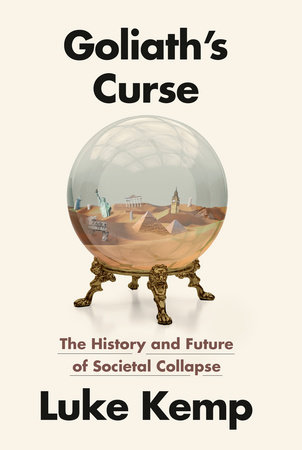Alastair McKinstry finished reading On Tyranny by Timothy Snyder

On Tyranny by Timothy Snyder
In previous books, Holocaust historian Timothy Snyder dissected the events and values that enabled the rise of Hitler and Stalin …
Climate scientist, Green party, former councillor in Galway, Ireland, Branch chair of IFUT.ie in the University of Galway
This link opens in a pop-up window

In previous books, Holocaust historian Timothy Snyder dissected the events and values that enabled the rise of Hitler and Stalin …

Children of Ruin is a 2019 science fiction novel by author Adrian Tchaikovsky, the second in his Children of Time …

Arendt's classic work explores totalitarianism through an extended analysis of the Nazi and Soviet regimes. In a series of dazzling …

"In Blueprint for Revolution, Srdja Popovic outlines his philosophy for implementing peaceful world change and provides a model for activists …
Pretty much the definitive eye-witness account from an outsiders perspective. If you enjoyed this, check out China Meville's history too.
Pretty much the definitive eye-witness account from an outsiders perspective. If you enjoyed this, check out China Meville's history too.

Humankind discovers intelligent life in an octopus species with its own language and culture, and sets off a high-stakes global …

In the far future, humanity has left Earth to create a glorious empire. Now this interstellar network of worlds faces …
Firstly, to agree with other reviewers the dialogue is excellent, witty, fast-paced. It keeps the story moving and its a strong story. I'm definitely getting the rest of the collection.
But the denouements and twists are beautiful, from the outcome of the mutiny in the prologue to the importance of peer review (!) revealed at the end of part two. Best laid plans falling apart because of different information is great.
The memory room is a nice device, too. As Sherlock had his Watson, Batman his Robin, I can see this century will have AI agents as the counterpart where the protagonist explains important bits of the plot. This needs to be done with care, and is.
But the overall arch is the best. The Empire is collapsing, the Emperox knows and has trusted experts explain the details, the sailors on the starships can see the "Flow" …
Firstly, to agree with other reviewers the dialogue is excellent, witty, fast-paced. It keeps the story moving and its a strong story. I'm definitely getting the rest of the collection.
But the denouements and twists are beautiful, from the outcome of the mutiny in the prologue to the importance of peer review (!) revealed at the end of part two. Best laid plans falling apart because of different information is great.
The memory room is a nice device, too. As Sherlock had his Watson, Batman his Robin, I can see this century will have AI agents as the counterpart where the protagonist explains important bits of the plot. This needs to be done with care, and is.
But the overall arch is the best. The Empire is collapsing, the Emperox knows and has trusted experts explain the details, the sailors on the starships can see the "Flow" collapsing (the plot device that allows interstellar travel), but saving humanity isn't happening because the oligarchs (guilds) don't want to know for the most part, and really don't care about saving humanity. There is a metaphor there somewhere ...

In the far future, humanity has left Earth to create a glorious empire. Now this interstellar network of worlds faces …

A vast and unprecedented survey of societal collapse—stretching from the Bronze Age to the age of silicon—that digs through the …